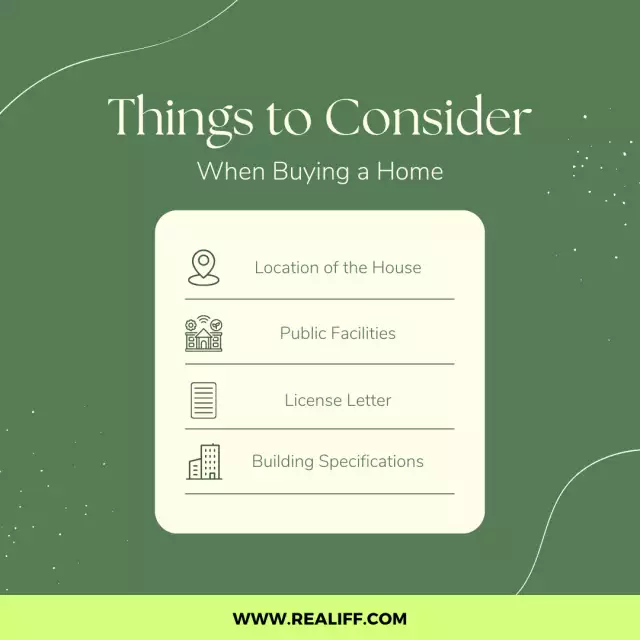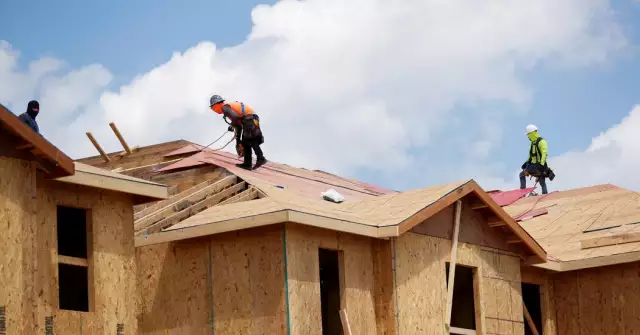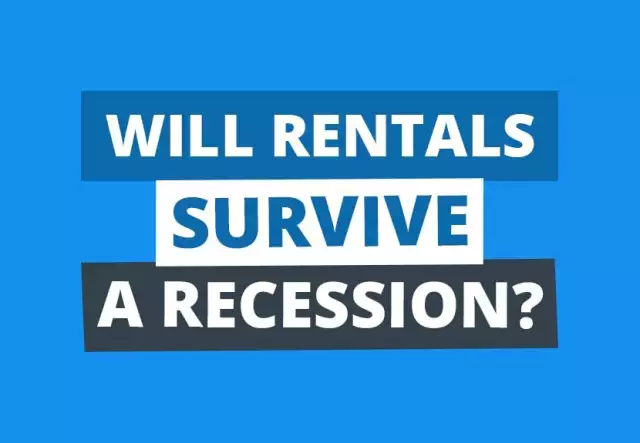Renting a Home or Apartment? Learn the Risks Before Signing the Lease.
Renting a Home or Apartment? Learn the Risks Before Signing the Lease.
Choosing a home or apartment to rent is a big decision. The outcome of that decision will impact many parts of your life for at least the next 12 months. From the amount of time your commute to work takes, to the restaurants and stores that you patronize, to the people that you interact with on a daily basis, the location of where you live plays a defining role in many aspects of your life. In addition to just location, the ownership, management teams, and characteristics of the actual building and unit that you select can positively or negatively affect your mental health, level of efficiency, and overall happiness. Issues like spotty cell service, noisy neighbors, intrusive landlords, or a poorly maintained building can ruin an entire year of your life. Unfortunately, renters typically do not find out about these issues until the lease is signed and they have already moved in. And since the Multifamily sector is so hot at the moment, renters usually need to make quick decisions if they want to secure a particular home or apartment.
Landlords and property managers also take a big risk when signing a lease. Is the resident going to pay rent on time? Are they going to throw loud parties? Are they going to damage common areas? Laws vary in every state, but it is notoriously difficult to evict a resident, so each lease has the potential to turn into a long term nightmare for the landlord. In order to mitigate risk for landlords and property managers, there are a lot of great solutions available in the market to address these issues.
Landlords often use Resident Screening solutions to help them make the best decisions as to who to rent to. The types of services that they offer include Credit Reports, Criminal Background Check, Prior Evictions, and some of them offer an overall rating on how likely someone is to pay on time and be a responsible resident. Many standalone companies offer these services including First Advantage, RentPrep, and Verifirst. Additionally, many of the leading property management software providers including Appfolio, Yardi, and RealPage have built this functionality into their platform. It is impossible to remove all risk when choosing a resident, but these offerings arm landlords and property management with tools to mitigate risk.
While landlords and property managers have access to screening solutions, residents often enter blindly into transactions due to a lack of readily available data. Some cities have databases of bad actors (often referred to as Slumlords), but the data is often incomplete and difficult to access. Realizing that this massive gap existed in the market, I decided to do some research to see if I could find any companies that offer solutions to help inform prospective renters about the quality of the landlord and characteristics of the location. It was not surprising to see that most companies were targeting property owners and managers since it is much easier to scale a company through large transactions for portfolio deals, instead of picking up renters one-by-one. But I was pleasantly surprised to see a variety of startups that were tackling these challenges with uniquely innovative offerings.
SmartRenter Inc.
SmartRenter innovated what they say is the “only instant, confidential national Landlord background screening system” (landlord authorization not required) to protect and serve the needs of renters. Their landlord credit background screening system generates an instant report which provides renters with the opportunity to see/screen a prospective landlord’s background before they apply or disclose any information as “prevention is the best protection”. Renters deserve to know who they may rent from for their safety.
They also innovated their proprietary Real-Time Landlord monitoring subscription service which alerts renters to any changes to a property owner’s background (even as minor as a pre-foreclosure notice) to add an additional layer of safety and peace of mind.
SmartRenter’s service is geared towards individual renters, off-campus students, vacation renters (users of Airbnb, VRBO,...). They are also having success selling to organizations who have decided to provide the service to their members. For example, universities are signing up for the service to help aid students/parents who are looking for off-campus housing to avoid the increasing number of rental scams and nefarious landlords who target students. Their clients also include advocates for victims of abuse, real estate agents, listing portals, and companies who offer the service to their employees as an added benefit in helping them secure safe housing.
ROVR Score
As important as it is to ensure that you are not signing a lease with a slumlord, there are other issues that have nothing to do with the actual landlord or property manager. We live in a connected world, and access to strong cellular and WiFi is no longer a luxury. From working at home, to streaming Netflix, to FaceTime with the grandparents, internet access is a necessity. Our dependency on quality connectivity will only increase as industries like TeleHeath, Virtual Learning, and Smart Homes continue to expand. Other than checking the service level on your cell phone during a tour, it is hard to determine signal levels in a home or apartment until you move in. This is where ROVR Score comes in.
ROVR Score gives the owner and the consumer a tool that evaluates and promotes the community’s quality of WiFi connectivity. They provide a unique ROVR Score badge that promotes the quality and connectability throughout an entire property. The badge gives consumers a way to easily identify the connectivity quality in their next home. ROVR refers to a survey which was conducted by J.Turner Research which found that 84% of consumers would use a tool that easily identifies the quality of an apartment building's WiFi connectivity prior to signing a lease. This survey also indicates that 9 out 10 residents rank internet connectivity as their number 1 amenity. You can download a copy of the survey results here.
Niche
For renters with children, the quality of the local schools is paramount. Real estate agents are limited in what they are legally permitted to share with clients about the schools in each market, so independent research is required. One of the best resources that I was able to find on local school information is Niche. Through their easy to navigate interface, users can find pertinent information from every public, private, charter, magnet and parochial school and school district in the nation, including ratings on academics, teachers, diversity, culture, and safety. Additionally, they offer data on class sizes, test scores, and user reviews from students, parents, and alumni. Niche’s school platform is enhanced by its data on places to live, which profiles more than 50,000 cities and towns in America across factors such as affordability, the local housing market, neighborhood diversity, area amenities and walkability. While not necessarily pertinent to this article, Niche also offers a ton of really valuable information for students who want to compare universities and grad schools in areas such as cost, scholarships, campus life, and rankings.
Walk Score
Walk Score has been around for many years, but I still find it to be an incredibly useful tool when searching for a new home or apartment, especially if you are moving to a new area that you are unfamiliar with. Walk Score is absolutely free to use, and within seconds you can learn about all of the nearby shopping and restaurants. It also provides information on how walkable the location is, if it is a good place for bike riding, the local mass transit routes, and whether or not owning a car is recommended. This information can really help to narrow down the neighborhoods that best meet the needs of you and your family. For a decision as important as where to live, I believe that it makes sense to use as many data points as possible. And since it is a free service, leveraging their platform is a no-brainer.
Additional Resources
In addition to the companies listed above, there are really valuable resources available to use before you decide where you want to rent. For instance, if someone in your household has respiratory issues, it is important to understand the level of pollutants in the air in the neighborhoods that you are looking at. A quick visit to the EPA’s AirNow website lets you check the air quality for any zip code in the country. If you want to learn about the crime levels in a neighborhood, a quick visit to Crime Grade provides instant access to crime reporting down to the zipcode. This tool is also free. Another problem that can give you buyer’s remorse is local traffic. Many people tour homes and apartments on nights and weekends, and the traffic levels during those times may not be representative of what traffic looks like during rush hour. Many people move to a new place in order to be closer to their job, but after they move in they realize that the daily traffic is so bad that it negates the time savings that they were hoping to achieve. Websites like TomTom can provide you with several years worth of traffic data, broken down by day and hour. The only downside is that their data is limited to large cities. Lastly, social proof can be extremely valuable in understanding exactly what life is like within a particular community, and websites like Google, Facebook, and RentGrata can provide invaluable insight into others’ experiences in a building that a renter is considering moving into.
The Next Big Thing
There are many factors that go into a successful startup, but at the most simplistic level it comes down to 3 things: An Idea, Capital, and Execution. Many entrepreneurs struggle with coming up with an innovative idea that hasn’t been tried before, that solves a real pain point, and has an enormous TAM. As I was researching this article, I had 2 observations. First, there are very few tools on the market to help inform renters about all of the things that they should be aware of before they sign a lease. Secondly, even though there are some amazing solutions as referenced above, each of them solves a single problem, and multiple tools are required to get a complete picture of everything that a prospective renter needs to know in advance. This leaves an opening for a company that aims to build a holistic offering that aggregates all of the relevant data points into a single interface. Whether a startup chooses to partner with several existing companies, or they choose to build from scratch, I believe that this idea has the potential to solve real world problems. As far as TAM goes, there are 43.6M rent based households in the US alone. And when you figure in the number of renters that change apartments every year, and you add short term and vacation rentals, you end up with a total addressable market that would thrill any VC .
Subscribe







